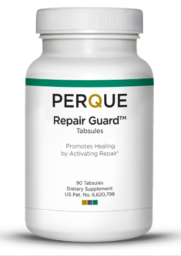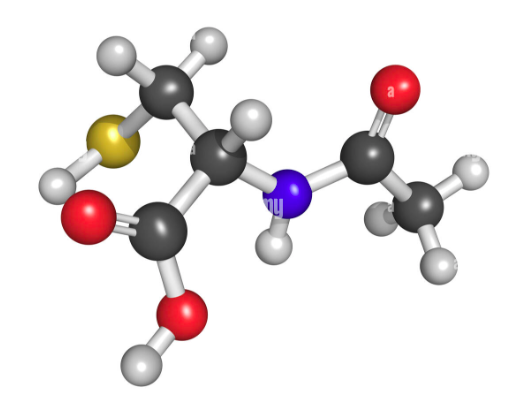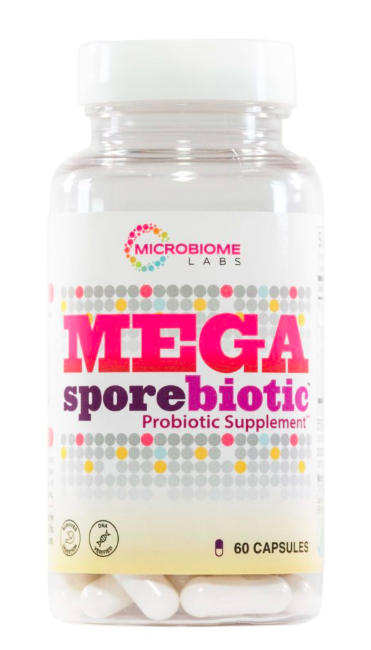 After a surgery, bouncing back to your regularly scheduled life as quickly as possible while moving forward with your healing is very important. I don’t know about you, but I can only binge watch so many episodes of even a great television show before I get a little stir-crazy. Let’s outline three main areas of support to help you get back on track after surgery.
After a surgery, bouncing back to your regularly scheduled life as quickly as possible while moving forward with your healing is very important. I don’t know about you, but I can only binge watch so many episodes of even a great television show before I get a little stir-crazy. Let’s outline three main areas of support to help you get back on track after surgery.
Understand Your Discharge Information
First and foremost, follow your doctor’s instructions and make sure you understand the details before you leave the hospital. Medication errors account for approximately 251,000 deaths a year.(1) Errors in dosing, taking the wrong medication at the wrong frequency, drug interactions, and missing doses are easy mistakes to make. The nursing staff goes over the discharge instructions, but you may not be in the frame of mind post surgery to take in info, so have a friend or family member listen in. Repeat back the instructions so that errors can be caught.
 The same goes for picking up your medications at the pharmacy: always repeat the instructions to the pharmacist and be open about asking questions. Double check your current medications with the new scripts. Repeating back the information you’ve been told to get confirmation is actually called 3-Way Communication and is a tool used in many other industries to minimize mistakes.(2) The 3 ways are: 1. You listen and receive information from someone else. 2. You repeat the info back to the person after you interpret it. 3. The person who is giving the information confirms that your understanding is correct (or incorrect). It takes just a quick extra minute, but it can be life-saving.
The same goes for picking up your medications at the pharmacy: always repeat the instructions to the pharmacist and be open about asking questions. Double check your current medications with the new scripts. Repeating back the information you’ve been told to get confirmation is actually called 3-Way Communication and is a tool used in many other industries to minimize mistakes.(2) The 3 ways are: 1. You listen and receive information from someone else. 2. You repeat the info back to the person after you interpret it. 3. The person who is giving the information confirms that your understanding is correct (or incorrect). It takes just a quick extra minute, but it can be life-saving.
First – Manage the Pain
Many times you will be given a variety of different over-the-counter pain options. Ibuprofen (Advil), Acetaminophen (Tylenol), and Naproxen (Aleve) are various pain relievers that have to be dosed and used very carefully for pain management. Each has an overdose potential and can damage the liver and kidneys, especially at high doses or with long-term use.(3,4,5) While necessary in short duration (usually 1-2 weeks) we would like to move on from these to something more beneficial to the body and its healing.
 Alternative support for pain management has been well studied, especially since the opioid epidemic. Quercetin (a flavonoid) has been studied for its inhibition of oxidative stress, suppression of pain-producing cytokines, and degradation of the proteoglycans (protein messengers) that cause swelling. It upregulates biochemical pathways that support anti-inflammatory conditions in tissues and supports mitochondria and cell healing.(6) Quercetin is used for many things—it aids digestion, helps eliminate seasonal allergies, gets rid of headaches, and may even lower cholesterol, but pain management is its greatest strength.
Alternative support for pain management has been well studied, especially since the opioid epidemic. Quercetin (a flavonoid) has been studied for its inhibition of oxidative stress, suppression of pain-producing cytokines, and degradation of the proteoglycans (protein messengers) that cause swelling. It upregulates biochemical pathways that support anti-inflammatory conditions in tissues and supports mitochondria and cell healing.(6) Quercetin is used for many things—it aids digestion, helps eliminate seasonal allergies, gets rid of headaches, and may even lower cholesterol, but pain management is its greatest strength.
The form of quercetin that absorbs best into the tissues is a water-soluble quercetin. This matters with pain management because you don’t have to take as much of it to reduce the pain. Many other forms of quercetin do exist; there is a wide range in quality, so, know your brands. I have tried inexpensive quercetin and got no pain relief. Repair Guard by Perque is a tried and true, high quality quercetin formula that I have personally used for post-surgical pain support.
When can you start using Repair Guard? Usually you are given the option to wean off prescription pain medication and onto optional over-the-counter meds (such as Acetaminophen, Ibuprofen, Naproxen). At that point, you are trying to reduce dependency on pain medications, so this would be a good time to start using Repair Guard. You can use the loading dose of 3 tablets 3-4x per day. As you feel less pain, you can reduce Repair Guard to 1-2 tablets 2-3x per day. Repair Guard can be used with Acetaminophen, Ibuprofen and Naproxen, as you are trying to wean off things that challenge the liver, GI and kidneys. If you use blood thinners (such as Warfarin, Coumadin) it is recommended NOT to use quercetin. Always check with your pharmacist regarding your drug interactions.
So, what can you do if you are taking meds that may have interactions? The answer to that is Homeopathic Arnica. Because homeopathics work completely differently than supplements or medications, the interactions are minimal and safe to take with many different medications. The mechanism is akin to how acupuncture works, which takes a degree in quantum physics to start to understand. However, Homeopathic Arnica has been demonstrated to reduce swelling and bruising, as well as pain post surgery.(7) From topical gels to oral liquids to tiny, tasteless pellets dissolved in the mouth or in water, many forms and potencies of Arnica exist. Usually, to reduce intense pain, swelling, or bruising, the 200C or 1M potencies (how homeopathics are measured) are used. Chronic or low-grade pain, swelling, or bruising calls for the 30C or 6C potencies.
Second – Repair the Gut
Probiotics are a must after surgery. Anesthesia, opioid-class pain medications, and antibiotics will often disrupt the healthy gut flora, creating high potential for yeast or bacterial overgrowths in the bowel. This usually results in digestive upset, bloating, loose stool, and abdominal pain. The deadly Clostridium difficile (C. dif) is a bacterial infection that causes up to 20% of antibiotic-associated colitis as well as up to 8% of post surgical colitis. C. dif is a common nosocomial pathogen, meaning it’s often acquired at the hospital.(8)
The probiotics that have been documented to best stabilize a gut infected with C. Dif are the bacillus strains found in MegaSpore. Bacillus clausii actually neutralizes the cytotoxin – the poison C. Dif makes that destroys your bowel.(9) Because C. dif, as well as bacterial and yeast overgrowths can really inhibit healing, and even create life-threatening infection, the probiotic MegaSpore is essential in stabilizing bowel health.
Third – Detox The Liver
It goes without saying that the liver is going to work overtime during and after a surgery. All anesthesia is essentially hepatotoxic (toxic for the liver).(10) So much so that it is very common to see elevated liver enzymes (AST and ALT) as well as bilirubin in the blood, all indicators of liver distress or inflammation. Anesthesia is one thing, but then we add the post-surgical pain medications like fentanyl, morphine, oxycodone, or tramadol, and acute liver distress is certain.(11)
 How do we fix it? Start a liver detox after the dosing of pain prescriptions is over. You can detox the liver when you are on quercetin because that is not hepatotoxic. The best post-surgical detox agent is the amino acid N-Acetyl Cysteine or NAC. NAC has been used in ICU therapies for Acetaminophen overdoses. NAC is used to create glutathione, a major liver antioxidant for detoxification pathways. Recommended dosing is 900 mg 2x per day for 14-30 days.
How do we fix it? Start a liver detox after the dosing of pain prescriptions is over. You can detox the liver when you are on quercetin because that is not hepatotoxic. The best post-surgical detox agent is the amino acid N-Acetyl Cysteine or NAC. NAC has been used in ICU therapies for Acetaminophen overdoses. NAC is used to create glutathione, a major liver antioxidant for detoxification pathways. Recommended dosing is 900 mg 2x per day for 14-30 days.
As always, check these over-the-counter recommendations with your healthcare provider or pharmacist before diving in. Rest and recovery, while necessary, does start to wear on the ol’ patience after a while. If you’re like me, you will want to get back to your normal routine as quickly as possible. Taking extra care during the healing phase following a surgical procedure will enable you to do just that. As always, come on into PeoplesRx or schedule a visit with a practitioner to learn more.
If you have comments and/or questions about this blog, email us at blog@peoplesrx.com.

Amy Nelson, ND* received her Naturopathic Doctorate from the National College of Natural Medicine in Portland, OR where she studied nutrition, homeopathy, herbal and functional medicine. In addition, Dr. Nelson was the Associate at The IBS Treatment Center in Santa Monica where she treated irritable bowel syndrome and complex food allergies. Dr. Nelson utilizes her experience in natural medicine to address female and male hormonal imbalances, mental health, and digestive disorders. Amy is available for consultation at Peoples Lakeline.
*Although licensed in other states, Naturopathic Doctors are not currently licensed in Texas.
References:
- Anderson JG, Abrahamson K. Your Health Care May Kill You: Medical Errors. Stud Health Technol Inform. 2017;234:13-17. PMID: 28186008.
- https://safetytalker.com/safety-talks/3-way-communication/#:~:text=3%2Dway%20communication%2C%20also%20known,can%20lead%20to%20dangerous%20situations
- LiverTox: Clinical and Research Information on Drug-Induced Liver Injury [Internet]. Bethesda (MD): National Institute of Diabetes and Digestive and Kidney Diseases; 2012-. Ibuprofen. [Updated 2018 Apr 16]. Available from: https://www.ncbi.nlm.nih.gov/books/NBK547845/
- LiverTox: Clinical and Research Information on Drug-Induced Liver Injury [Internet]. Bethesda (MD): National Institute of Diabetes and Digestive and Kidney Diseases; 2012-. Acetaminophen. [Updated 2016 Jan 28]. Available from: https://www.ncbi.nlm.nih.gov/books/NBK548162/
- LiverTox: Clinical and Research Information on Drug-Induced Liver Injury [Internet]. Bethesda (MD): National Institute of Diabetes and Digestive and Kidney Diseases; 2012-. Naproxen. [Updated 2020 Mar 20]. Available from: https://www.ncbi.nlm.nih.gov/books/NBK548159/
- Salehi B, Machin L, Monzote L, Sharifi-Rad J, Ezzat SM, Salem MA, Merghany RM, El Mahdy NM, Kılıç CS, Sytar O, Sharifi-Rad M, Sharopov F, Martins N, Martorell M, Cho WC. Therapeutic Potential of Quercetin: New Insights and Perspectives for Human Health. ACS Omega. 2020 May 14;5(20):11849-11872. doi: 10.1021/acsomega.0c01818. PMID: 32478277; PMCID: PMC7254783.
- Stevinson C, Devaraj VS, Fountain-Barber A, Hawkins S, Ernst E. Homeopathic arnica for prevention of pain and bruising: randomized placebo-controlled trial in hand surgery. J R Soc Med. 2003 Feb;96(2):60-5. doi: 10.1177/014107680309600203. PMID: 12562974; PMCID: PMC539394.10.1021/acsomega.0c01818. PMID: 32478277; PMCID: PMC7254783.
- Southern WN, Rahmani R, Aroniadis O, Khorshidi I, Thanjan A, Ibrahim C, Brandt LJ. Postoperative Clostridium difficile-associated diarrhea. Surgery. 2010 Jul;148(1):24-30. doi: 10.1016/j.surg.2009.11.021. Epub 2010 Feb 8. PMID: 20116817; PMCID: PMC2886164.
- Ripert G, et al. Secreted compounds of the probiotic Bacillus clausii strain O/C inhibit the cytotoxic effects induced by Clostridium difficile and Bacillus cereus toxins. Antimicrob Agents Chemother. 2016;60(6):3445-3454.
- Safari S, Motavaf M, Seyed Siamdoust SA, Alavian SM. Hepatotoxicity of halogenated inhalational anesthetics. Iran Red Crescent Med J. 2014 Sep 5;16(9):e20153. doi: 10.5812/ircmj.20153. PMID: 25593732; PMCID: PMC4270648.
- LiverTox: Clinical and Research Information on Drug-Induced Liver Injury [Internet]. Bethesda (MD): National Institute of Diabetes and Digestive and Kidney Diseases; 2012-. Opioids. [Updated 2020 Nov 24]. Available from: https://www.ncbi.nlm.nih.gov/books/NBK547864/

